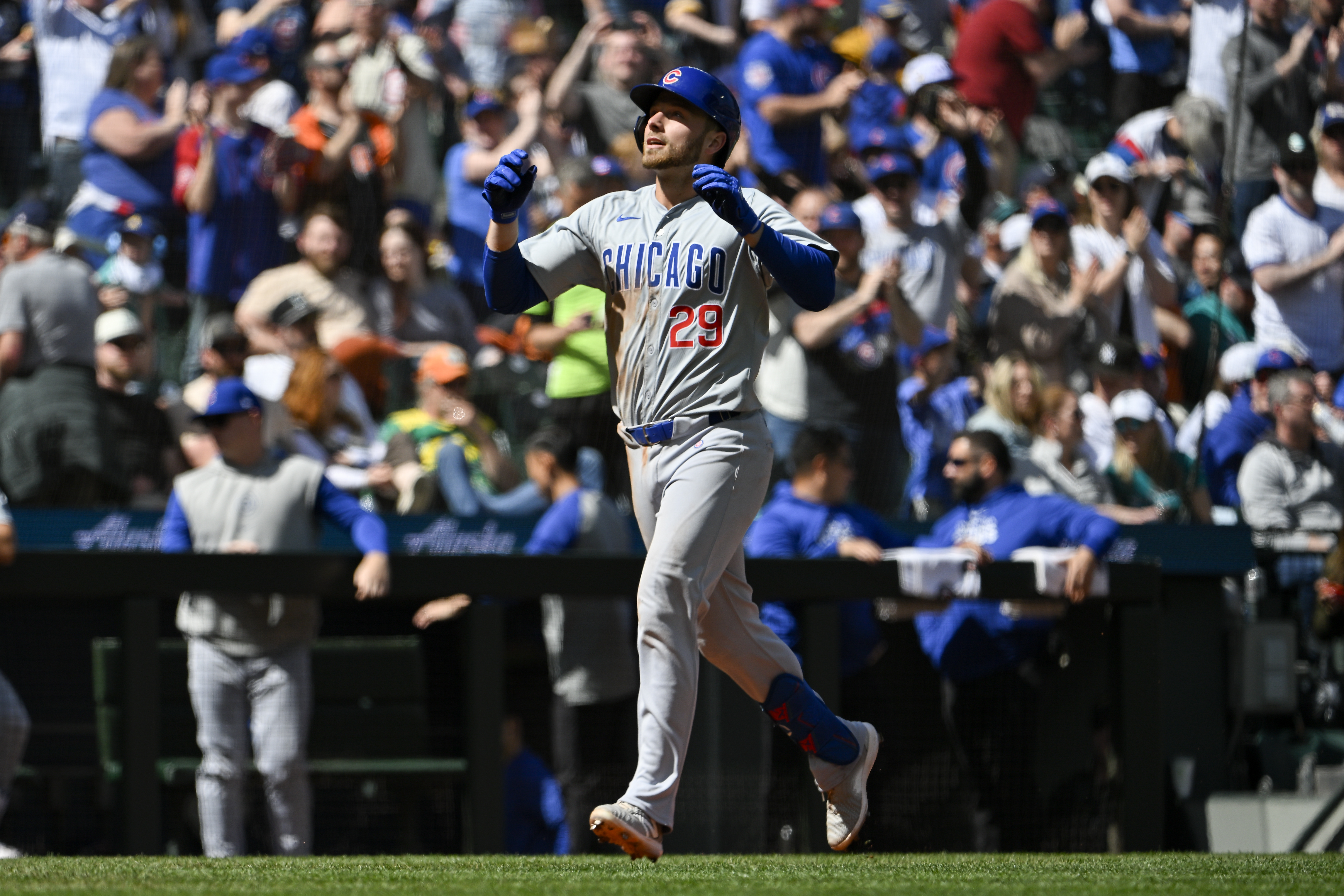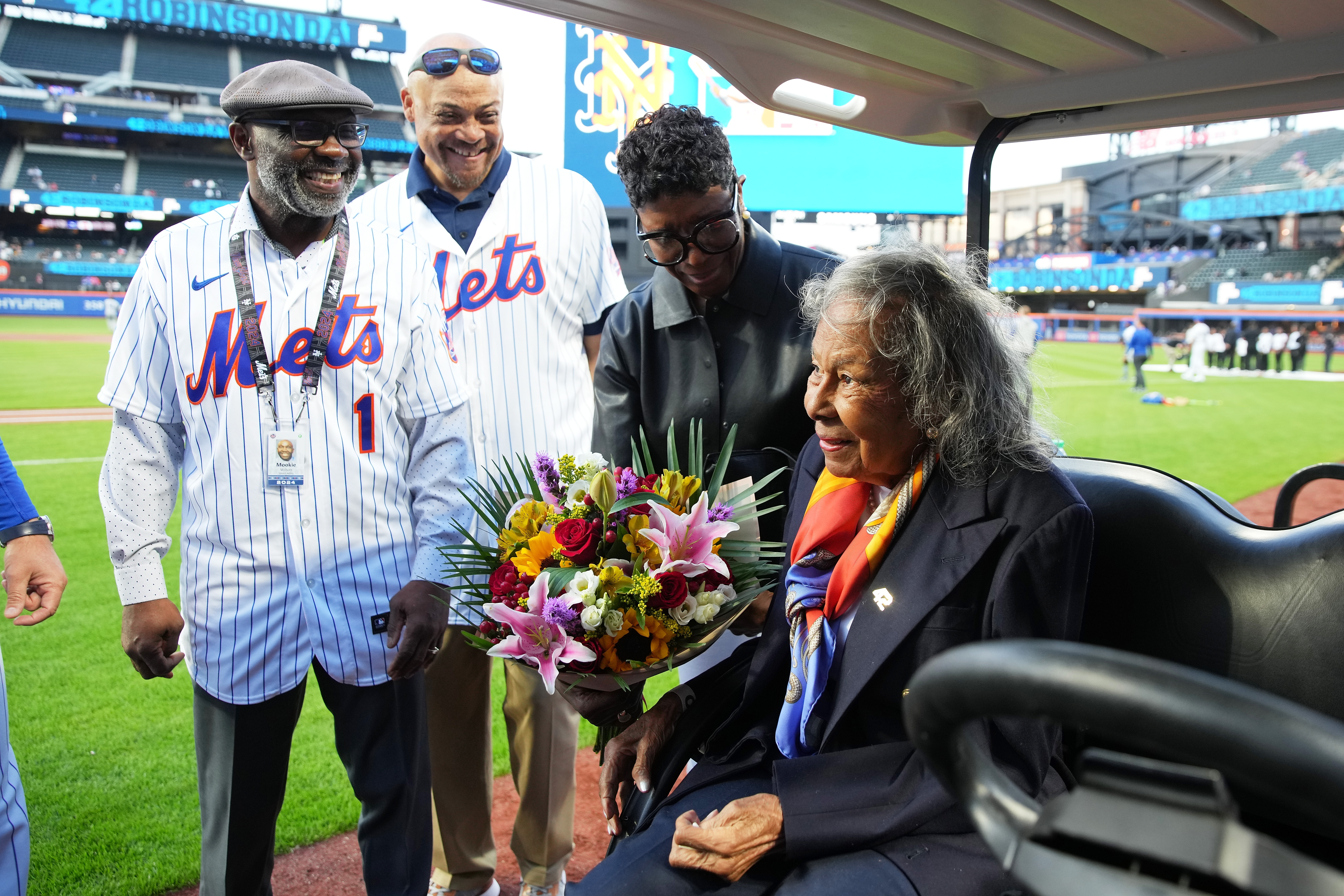As bars of various rap, country, and oldies hits blared through hanging speakers in the Chicago Grand Sheraton on Friday evening, dozens of Cubs players -- past and present -- filed up onto the stage to thunderous applause, slapping five with kids and waving to adults as they took their seats for the 2019 Cubs Convention opening ceremonies. The room roared for the likes of Kerry Wood and Kris Bryant, even mustering up an impressive show of enthusiasm for newest Cub Daniel Descalso, whose introductory picture still featured him in a Colorado Rockies uniform.
One Cubs player who was predictably absent from the event was Addison Russell. The 24-year-old shortstop has been away from the Cubs since early October, when Melissa Reidy -- Russell’s ex-wife -- came forward publically with disturbing accusations of physical and emotional abuse. Following an investigation, MLB handed the Cubs’ shortstop a 40-game suspension for violating Major League Baseball's Joint Domestic Violence, Sexual Assault and Child Abuse Policy. After the Cubs came under fire in 2016 for trading for closer Aroldis Chapman, who himself received a 30-game suspension for violating the same policy, many fans around the North Side were ready to cut ties entirely. The Cubs felt that pressure, not only externally, but internally too.
“Collectively and individually, our initial reaction after the suspension was, because domestic violence is so clearly unacceptable as a behavior or pattern of behavior, because it’s such a plague of society, our initial reaction was just to move on,” Cubs President Theo Epstein said. “That’s not something we want to be connected with. Separate ourselves from it and solve it by creating as much distance from it as possible.”
That didn’t happen, though. In late November of 2018, the Cubs tendered Russell a contract, avoiding the first year of arbitration and settling on a (non-guaranteed) one-year, $3.4 million deal. Epstein offered a handful of reasons for the move, noting that the Cubs consulted with several domestic violence experts, all of whom stressed the importance of second chances. He also mentioned that they wanted to support their players not just during high moments, but the low ones as well and that the situation offered a valuable teachable moment for everyone within the organization. Most notably, he talked about how he had personally consulted with Reidy, who was supportive of the decision.
“I was engaged with Melissa Russell, the victim, who deserves our support every bit as much if not more than Addison given the circumstances,” Epstein added. “And she was supportive of our decision as long as it was truly a conditional second chance. She felt like it was Addison’s best chance to get his life in order - to get support from us, with the incentive of earning his way back to the Cubs.”
Russell will be a full participant in spring training, and should he show enough progress for the Cubs’ liking, will likely have every chance to earn back the starting shortstop job. Though his presence will surely be at least an early-season hot-button topic, teammates aren’t worried about the accusations and suspension looming over them all year.
“No, honestly I don’t have to worry about that at all. I can say that confidently because our organization has done a great job of taking ownership,” outfielder Jason Heyward said. “Since I’ve been here, everything they’ve said to me, everything they’ve shown us or promised us has happened, and the way they’ve put it to us is they’re there for us when we when, when we bring a World Series to Chicago, helping bring a lot of winning seasons to Chicago - they stand by us then, but they’re also apart of it when negative things happen. They don’t want to leave us hanging.”
MLB
“That being said, they hold us accountable as well. To me, attitude reflects leadership. They hold themselves accountable for going into our season bringing in some bats and some things they can do better in the front office and they can look at us the same. I feel like with Addy’s situation right now, they don’t want to just pass it off to someone else, they don’t want to feel like, ‘Okay, we just took him for the good, and then the bad we left him hanging.’ I feel like they want to be part of the solution in general -- regardless of whether there’s baseball involved or off the field, I feel like, to me, that’s something that takes a lot of pressure off me as a player. I don’t have to worry about it and focus on it - they focus on handling that situation and they want to the best for everyone in it.”
Every Cubs player or coach asked about Russell was quick to stress that he still has a long way to go. (“I feel like he’s taken the steps in that process but right now I think he’s very early in it,” Heyward added.) Off-the-field issues take priority, and if the Cubs like what they see in that department, then the door’s open for a return. What would an acceptable effort look like to the Cubs? Epstein laid it out simply:
“If he took accountability for his actions, publicly and privately, which he did, if he became fully compliant with MLB’s discipline plan and treatment program, which he has from day one. If it’s a real treatment program, extensive, it’s not token at all. If he sought additional help and did it on his own, finding his own therapist and meeting with them 4-5 times a week, which continues to this day and long after the mandated treatment is over. If he had spotless behavior and holds him to the highest possible standards of conduct with himself, his partners, his relationships and the organization. Then he could earn his way back into playing a game again for the Chicago Cubs.”


